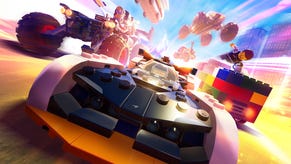E3: Nintendo bows out of next-gen technology race
At the unveiling of the Revolution platform in Los Angeles, Japanese giant Nintendo has given the clearest indication yet that it does not intend to compete directly with Sony and Microsoft's technologically advanced next-gen consoles.
At the unveiling of the Revolution platform in Los Angeles, Japanese giant Nintendo has given the clearest indication yet that it does not intend to compete directly with Sony and Microsoft's technologically advanced next-gen consoles.
In sharp contrast to the unveiling of Xbox 360 and PlayStation 3, Nintendo declined to discuss the exact specifications of the Revolution, instead focusing on the firm's intention to appeal to the mass market with the system.
Revolution will be the smallest home console Nintendo have ever made, according to company president Satoru Iwata, who presented the system to a packed auditorium in the Hollywood Renaissance hotel this morning.
The unit will be powered by an IBM chip called Broadway and an ATI graphics part called Hollywood, but exact specs of those components have not been announced - with Iwata's only comment on that aspect of the spec being that "when you turn on Revolution and see the graphics, you will say 'wow!'"
Tellingly, one of the key announced features of the Revolution is nothing to do with next-generation games at all, but rather to do with Nintendo's back catalogue - all of which will be playable on the new system, right from the NES through to the N64 and the GameCube.
The console will boast 512MB of on-board flash memory storage which can be expanded by the addition of industry standard SD memory cards. This storage is expected to be used to store NES, SNES and N64 titles which can be downloaded over the internet to the system, as well as for other purposes which the firm has alluded to but not yet revealed.
The controllers - which were not revealed at the event, although Iwata promised that they will be "very unique" - will be wireless, and the system has two USB 2.0 ports and Wi-Fi network connectivity built in.
The presentation of the console couldn't have been more different to the stat- and technology-heavy approach of Microsoft and Sony, with Nintendo going out of its way to describe itself as a content company rather than a technology company and focusing heavily on their efforts to appeal to audiences outside of the core gamer demographic.
"Our goal is to develop a device which is functional and appealing to every member of the household, whether they consider themselves gamers or not," Iwata explained in his presentation.
"Nintendo Revolution shares a common vision with what we outlined for Nintendo DS last year," he continued. "The machine is just a tool; the experience comes from the software."
The company also touted the platform as being by far the most developer-friendly of the next-generation machines, suited to handling both "big-budget, high profile masterpieces" and smaller indie-style games.
"Not everyone sets out to create an expensive masterpiece," Iwata acknowledged, going on to describe Revolution development as "simpler, faster and less expensive than any other next-generation system."
"This is a console where big ideas can prevail over big budgets," he said, reiterating a similar point which he made during his keynote presentation to the Game Developers Conference in San Francisco earlier this year.
The fact that Nintendo has chosen to avoid a head-on conflict with Microsoft and Sony's hugely high specification systems is telling. Reports this morning suggested that Revolution will be three to four times more powerful than GameCube, as opposed to the far higher multiples being quoted by its rivals, and the overwhelming feeling from Nintendo's conference was that the new console is designed to be a cheap and highly profitable device rather than a giant and expensive technological land-grab.
In effect, then, the firm seems to be bowing out of the "arms race" which Microsoft and Sony have entered into over next-gen consoles. However, the Revolution still remains the most enigmatic of the forthcoming systems - with the full specification, "unique" controller design and perhaps much of the system's non-games functionality still firmly under wraps even after the long-awaited E3 conference.








